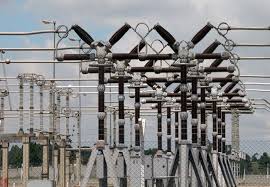Nigeria’s electricity distribution companies, popularly known as DisCos, are once again in the spotlight as revenue shortfalls continue to haunt the sector. In the first quarter of 2025 alone, the 12 DisCos recorded a whopping N202.61 billion gap between what they billed customers and what they actually collected. This is despite a significant increase in energy bills across the country.
According to the Nigerian Electricity Regulatory Commission (NERC), power distribution companies billed a total of N761.91 billion from January to March this year, but only managed to collect N559.3 billion. That translates to a 73.4 per cent collection efficiency, leaving a 26.6 per cent shortfall.
Compared to the same period in 2024, where N368.65 billion was billed and N291.62 billion was collected (a 79.1 per cent efficiency), the situation has deteriorated in terms of losses. The shortfall more than doubled year-on-year, with over N100 billion more lost in 2025.
Breakdown of performance shows that Ikeja Electric billed the highest amount at N129.91 billion and collected N101.2 billion, leaving N28.71 billion unpaid. Eko Disco followed, billing N123.76 billion and collecting N101.51 billion. Abuja Disco issued N109.73 billion in bills but got only N88.1 billion from customers.
On the lower end, Jos, Yola, and Kaduna DisCos struggled the most. Jos Disco billed N36.31 billion but recovered only N17.13 billion, suffering a massive 52.8 per cent shortfall. Kaduna billed N24.22 billion but received N11.72 billion. Yola Disco, often flagged for poor service delivery, billed N14.42 billion and collected just N8.2 billion, a 43.1 per cent shortfall.
Even Aba Power, the newest player in the market, couldn’t escape the trend. It billed N17.65 billion and recovered N9.32 billion, losing N8.33 billion in just one quarter.
Industry watchers and stakeholders say this recurring issue paints a bleak picture of the financial health of the DisCos and the power sector at large. The problem, they argue, is not just poor collection but also the lack of adequate infrastructure, investment, and transparency in billing.
The Minister of Power, Chief Adebayo Adelabu, did not hide his displeasure. In a recent media address, he described the performance of the DisCos as “chronic underperformance.” According to him, the DisCos have failed to invest in essential metering systems, upgrade their networks, and improve revenue assurance.
Adelabu warned that the federal government is reviewing performance agreements with all DisCos. He noted that persistent underperformers may lose their licenses if they fail to turn things around.
Energy experts also stress that the entire power value chain — including the Transmission Company of Nigeria (TCN) and the generation companies (GenCos) — suffers whenever the DisCos fail to remit expected revenues.
Recently, Abuja Electricity Distribution Company (AEDC) refunded N241.45 million to nearly 10,000 customers over billing irregularities and regulatory breaches. The refund covered June 2024 to January 2025 and was part of NERC’s enforcement effort.
NERC’s latest report recommends urgent action to close Nigeria’s wide metering gap, which now affects over 7 million customers. The Commission also emphasized the need for improved network reliability and billing transparency.
Mr. Uket Obonga, National Secretary of the Nigeria Electricity Consumer Advocacy Network (NECAN), said many DisCos are still rejecting load allocations and misbilling unmetered customers, despite regulatory sanctions. He accused some companies of ignoring approved energy caps, particularly for customers without prepaid meters.
Obonga stated that one major reason DisCos are failing is their refusal to inject new investment since privatization. He said most DisCos paid for their 60 per cent equity stakes during the initial acquisition but have done little since then to upgrade their infrastructure or improve efficiency. The federal government’s 40 per cent stake, he noted, hasn’t translated into tangible improvements either.
With Aggregate Technical, Commercial and Collection (ATC&C) losses still high, and market shortfalls worsening, Obonga argued that the entire system is at risk. He insisted that unless infrastructure is improved and regulation enforced, Nigeria’s power problems will persist.
To strengthen oversight, NERC activated its Performance Monitoring Framework Order, mandating that all DisCos must utilise at least 95 per cent of their Power Purchase Capacity (PCC) or face penalties. Only five companies met this threshold in Q4 2024, showing how widespread the inefficiencies remain.
Meanwhile, the government’s Meter Acquisition Fund (MAF) has been set up to finance the mass rollout of meters. But with millions of customers still on estimated billing, the pace of progress remains slow.
In conclusion, while the Nigerian government and regulators continue to push for reforms, power sector inefficiencies — particularly among DisCos — remain a major bottleneck. Without strong investment, regulatory compliance, and honest billing practices, the vision of stable and affordable electricity for all may remain a distant dream.
